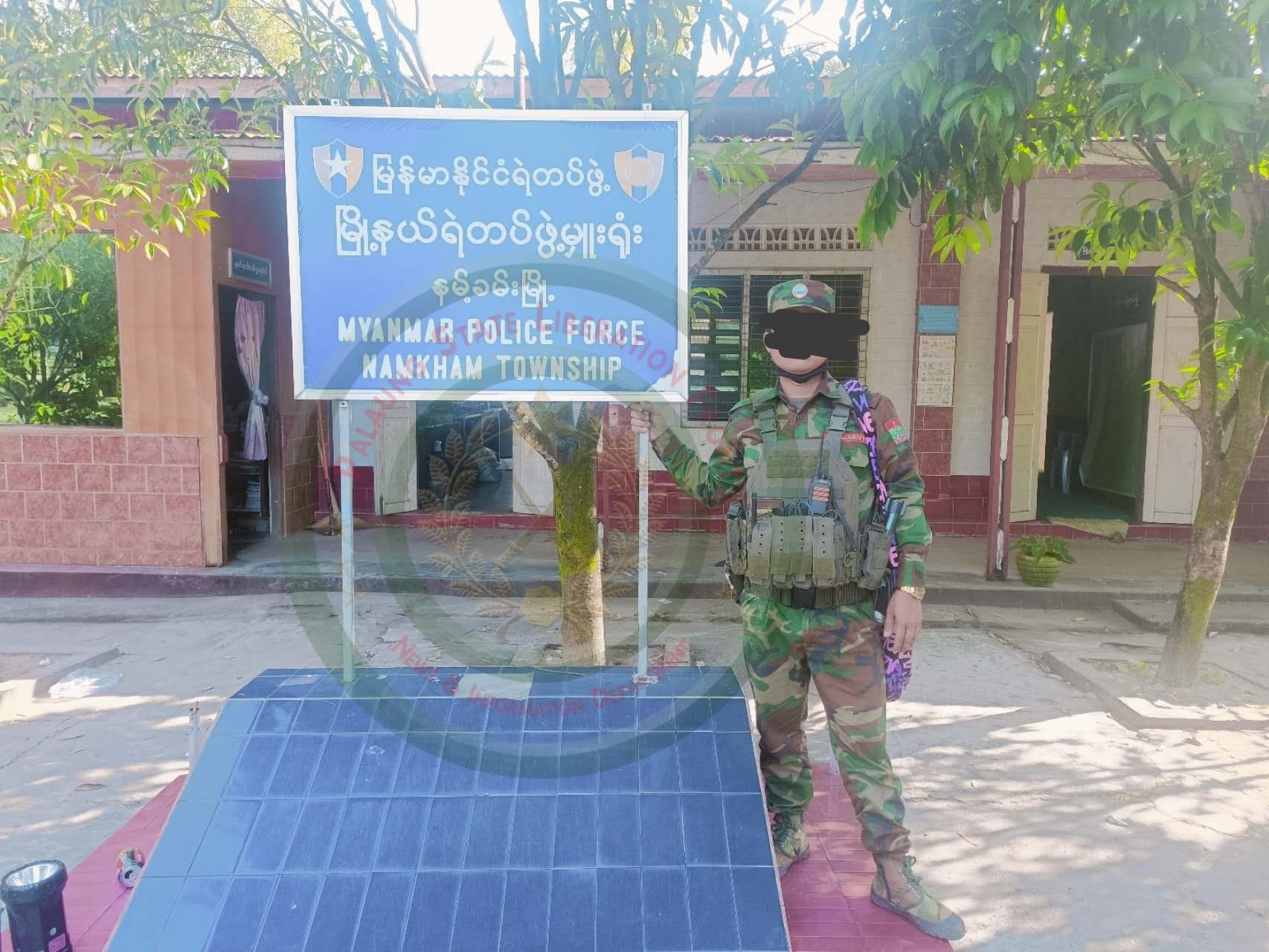Nay Pyi Taw, 11 November
Junta chief General Min Aung Hlaing blamed the police forces for the military council’s bases, police outposts, and police stations being relinquished during the Northern Shan battle.
The Defense and Security meeting, which is usually held only after the end of the state of emergency, was convened urgently on November 8 because of the Operation 1027, and he talked about the fight against drugs and improving the capacity of the police force.
He said that the cause of the problem in Northern Shan State is drugs, and armed groups are attempting to gain power with the income from that, so he will work to increase the capacity of the police to eradicate drugs.
CDM Air Force Capt. Zey Thu Aung told Than Lwin Times that “the loss of police stations and administrative offices is due to the poor performance of the police. In fact, the police only have to perform the duties of the police.”
He noted that after the coup, when the police fought alongside the soldiers, the number of police killed was higher than the number of soldiers killed because the police were less experienced.
On November 3, a police officer asked a senior officer for air support amidst the sound of gunfire during the seizure of the Minywa police station in Gangaw Township, Magway, but the plane did not arrive until the entire camp was seized.
According to the Ministry of Defense of NUG, six people, including a policeman who requested air support, were killed in the battle; 11 surrendered; and four fled the camp.
Military camps and administrative offices have been continuously falling not only in Northern Shan State but also in Sagaing, Magway, and other regions as a result of a concerted attack by the Kachin Independence Army (KIA) and armed resistance groups, including The Three Brotherhood Alliance.

CDM Police Sergeant Ko Aye Min Tun of Thaton-PDF told Than Lwin Times that the structural change in the military council’s police force has made the policemen less qualified.
After the military coup, the military council fully brought the Myanmar Police under its control and appointed Deputy Minister of Home Affairs Lt. Gen. Ni Lin Aung as the head of the police.
On March 25, the military council amended the Myanmar Police Force Law, which mandated that police officers must serve for national defense and security, if necessary, in addition to law enforcement and community peace.
Police forces have been sent to the front lines along with soldiers since the coup, with the military council deploying forces all over the country to respond to the attacks of the anti-regime forces.
Furthermore, not only police officers but also soldiers were assigned to serve in police stations in risky locations, as was the case in administrative offices.
News-Than Lwin Times Photo-TNLA

